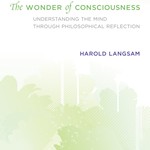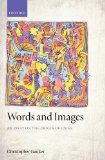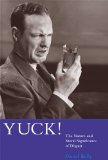new book – ‘The Wonder of Consciousness: Understanding the Mind Through Philosophical Reflection’
August 6, 2011
The Wonder of Consciousness: Understanding the Mind through Philosophical Reflection by Harold Langsam (MIT Press, 2011)
Product description from the publisher:
Consciousness is a wonderful thing. But if we are fully to appreciate the wonder of consciousness, we need to articulate what it is about consciousness that makes it such an interesting and important phenomenon to us. In this book, Harold Langsam argues that consciousness is intelligible–that there are substantive facts about consciousness that can be known a priori–and that it is the intelligibility of consciousness that is the source of its wonder. Langsam first examines the way certain features of some of our conscious states intelligibly relate us to features of the world of which we are conscious. Consciousness is radically different from everything else in the world, and yet it brings us into intimate connection with the things of the world. Langsam then examines the causal powers of some of our conscious states. Some of these causal powers are determined in an intelligible way by the categorical natures of their conscious states: if you know what consciousness is, then you can also know (by the mere exercise of your intelligence) some of what consciousness does. Langsam’s intent is to get the philosophy of mind away from the endless and distracting debates about whether consciousness is physical or not. He shows that there are substantive things that we can discover about consciousness merely through philosophical reflection. The philosopher who takes this approach is not ignoring the empirical facts; he is reflecting on these facts to discover further, nonempirical facts.






